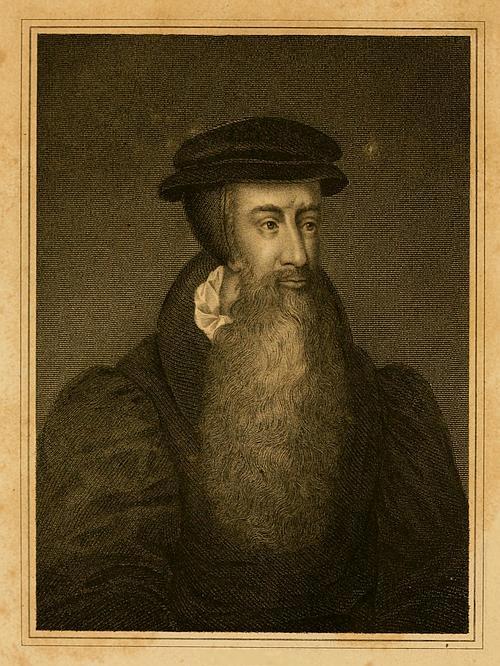
Transcriber’s Notes
The cover image was provided by the transcriber and is placed in the public domain.
Punctuation has been standardized.
This book was written in a period when many words had not become standardized in their spelling. Words may have multiple spelling variations or inconsistent hyphenation in the text. These have been left unchanged unless indicated with a Transcriber’s Note.
Footnotes are identified in the text with a superscript number and have been accumulated in a table at the end of the text.
Transcriber’s Notes are used when making corrections to the text or to provide additional information for the modern reader. These notes are not identified in the text, but have been accumulated in a table at the end of the book.

Engraved by J. Cochran.
JOHN KNOX
FROM THE ORIGINAL PICTURE IN THE POSSESSION OF
LORD TORPHICHEN.
Published by W. Blackwood, Edinburgh, April 10, 1831.
LIFE
OF
JOHN KNOX:
CONTAINING
ILLUSTRATIONS OF THE HISTORY OF
THE REFORMATION IN SCOTLAND.
WITH BIOGRAPHICAL NOTICES OF THE PRINCIPAL REFORMERS, AND SKETCHES OF THE PROGRESS OF LITERATURE IN SCOTLAND DURING THE SIXTEENTH CENTURY;
AND
AN APPENDIX,
CONSISTING OF ORIGINAL PAPERS.
By THOMAS M‘CRIE, D.D.
THE FIFTH EDITION.
VOL. I.
WILLIAM BLACKWOOD, EDINBURGH; AND
T. CADELL, STRAND, LONDON.
MDCCCXXXI.
EDINBURGH:
PRINTED BY BALLANTYNE AND COMPANY,
PAUL’S WORK, CANONGATE.
PREFACE
TO THE
FIRST EDITION.
The Reformation from Popery marks an epoch unquestionably the most important in the History of modern Europe. The effects of the change which it produced, in religion, in manners, in politics, and in literature, continue to be felt at the present day. Nothing, surely, can be more interesting than an investigation of the history of that period, and of those men who were the instruments, under Providence, of accomplishing a revolution which has proved so beneficial to mankind.
Though many able writers have employed their talents in tracing the causes and consequences of the Reformation, and though the leading facts respecting its progress in Scotland have been repeatedly stated, it occurred to me that the subject was by no means exhausted. I was confirmed in this opinion by a more minute examination of the ecclesiastical history of this country,